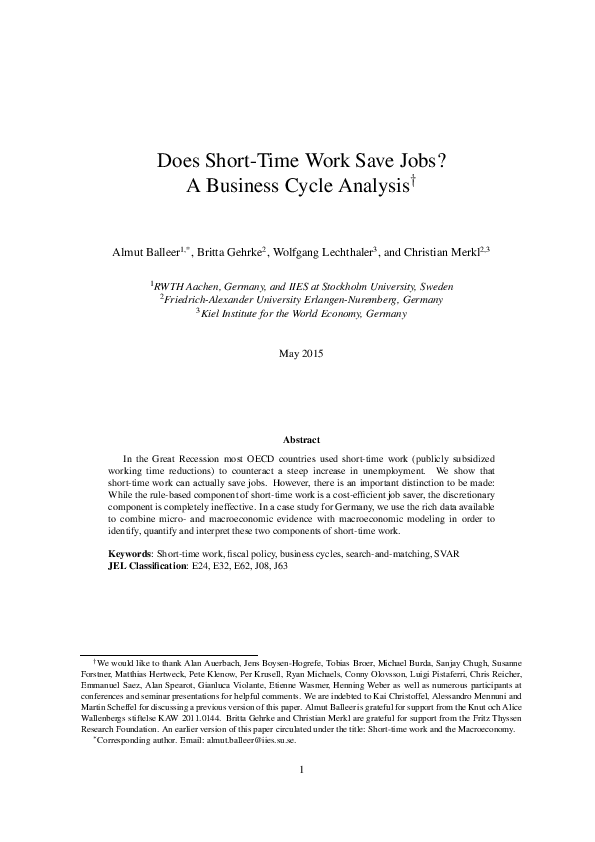Journal Article
Does Short-Time Work Save Jobs? A Business Cycle Analysis
European Economic Review
Authors
Publication Date
JEL Classification
E24
E32
E62
J08
J63
Key Words
Related Topics
Business Cycle
Business Cycle World
Fiscal Policy & National Budgets
Growth
Labor Market
Tax Policy
Welfare State
In the Great Recession most OECD countries used short-time work (publicly subsidized working time reductions) to counteract a steep increase in unemployment. We show that short-time work can actually save jobs. However, there is an important distinction to be made: While the rule-based component of short-time work is a cost-efficient job saver, the discretionary component is completely ineffective. In a case study for Germany, we use the rich data available to combine micro- and macroeconomic evidence with macroeconomic modeling in order to identify, quantify and interpret these two components of short-time work.




